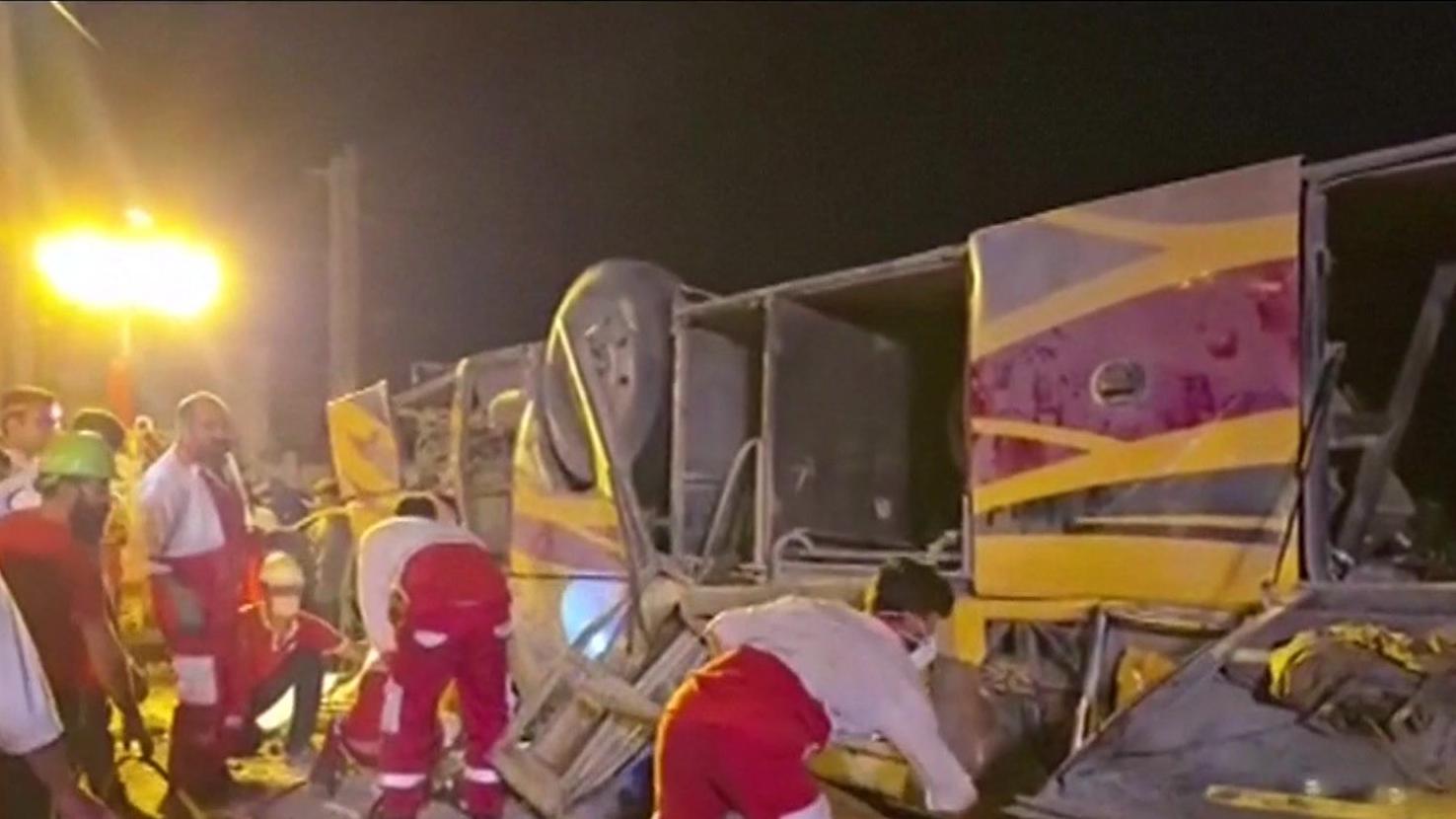
Bus Transporting Pakistani Pilgrims Overturns, Resulting in the Death of At Least 28
An Iranian bus transporting Pakistani pilgrims overturned on Tuesday, resulting in the deaths of more than 20 passengers and the injuries of 23 others.
After a bus transporting Pakistani devotees in Iran overturned, Iranian state media has reported the deaths of at least 28 passengers.
The faulty braking system was the cause of the tragedy, which took place on Tuesday night in Yazd province, central Iran.
In addition, Pakistan’s ambassador to Iran, Muhammad Mudassir Tipu, informed the BBC that 23 passengers sustained injuries, with 14 of them in critical condition.
In order to witness one of the most significant events in the Shia calendar, the devotees were traveling from Sindh province in Pakistan to Karbala, Iraq.
Pilgrims from Larkana, Ghotki, and other cities in Sindh were among the approximately 50 passengers on the bus at the time of the accident, according to local media.
In accordance with Ali Malekzadeh, the director of crisis management, eleven women and seventeen males were among the deceased.
The bus was involved in a conflagration near the Dehshir-Taft checkpoint in Iran, which is approximately 681 kilometers (423 miles) south of Tehran, according to local media.
According to Malekzadeh, the bus’s departure from the roadway was precipitated by “a lack of driver control, technical issues, high speed, and unfamiliarity with the road.”
In response, Pakistan’s President Asif Ali Zardari declared that the foreign ministry would provide assistance to the injured and repatriate the corpses.
In response to the Iranian bus tragedy, Interior Minister Moshin Naqvi conveyed profound sorrow for the loss of life.
Pakistan has assigned its consulate in Iran the responsibility of providing assistance in the recovery process. Tipu clarified that he maintains communication with the Iranian government and local authorities in Yazd.
Iran’s road safety record is notoriously abysmal, ranking among the worse in the world.
The UN’s road safety fund is presently involved in a project to enhance the safety of traffic in Iran.
Imam Hussein, the grandson of the Prophet Mohammed, concludes a 40-day period of mourning with the pilgrimage, or Arbaeen.
Many adherents continue to experience profound sorrow and anguish as a result of Imam Hussein’s death in the Battle of Karbala, which occurred more than a thousand years ago.
Pilgrims from all over the world visit his tomb, which is beneath a gilded dome.
Fairy lights, flowers, and banners are used to illuminate the ancient city of Karbala during Arbaeen.
The Iraqis of Karbala reflect their tradition of hospitality by taking delight in hosting Arbaeen pilgrims.
The Arbaeen pilgrimage, which was the greatest annual pilgrimage on Earth last year, attracted approximately 25 million participants.
In contrast, the Hajj to Mecca was witnessed by approximately 2.5 million pilgrims in the same year.
All Categories
Recent Posts
Tags
+13162306000
zoneyetu@yahoo.com



